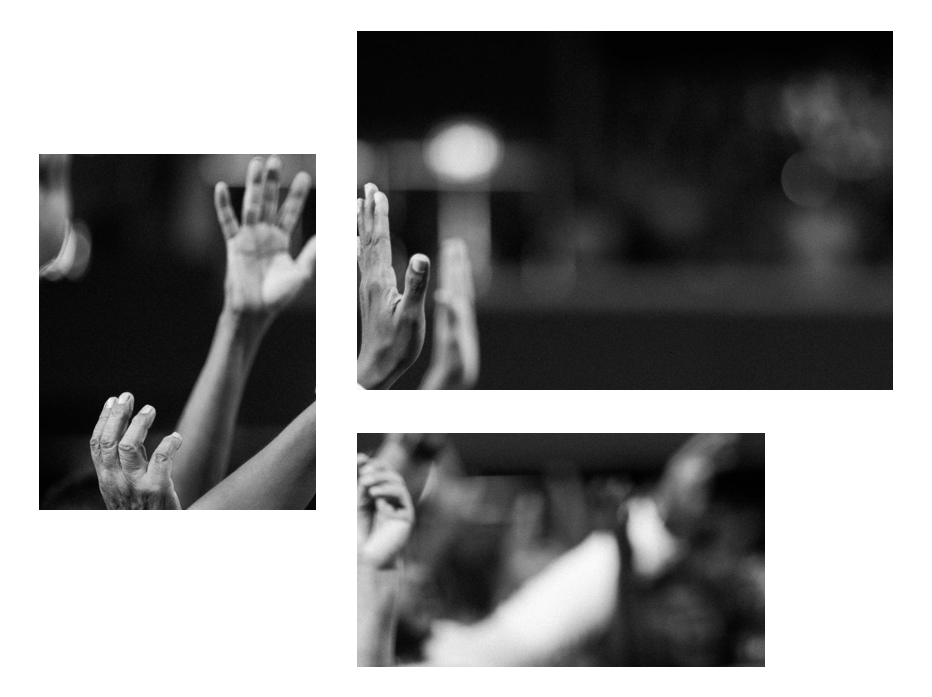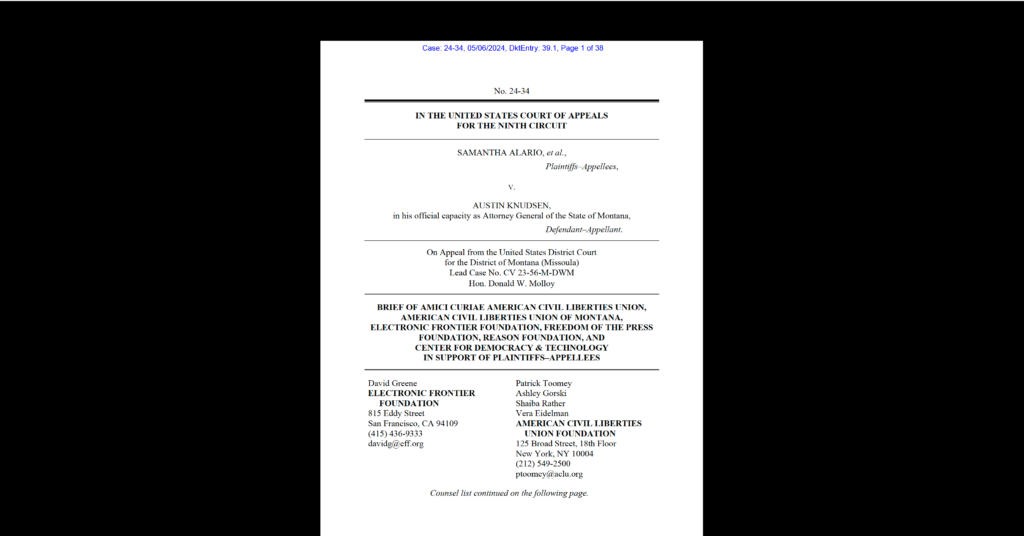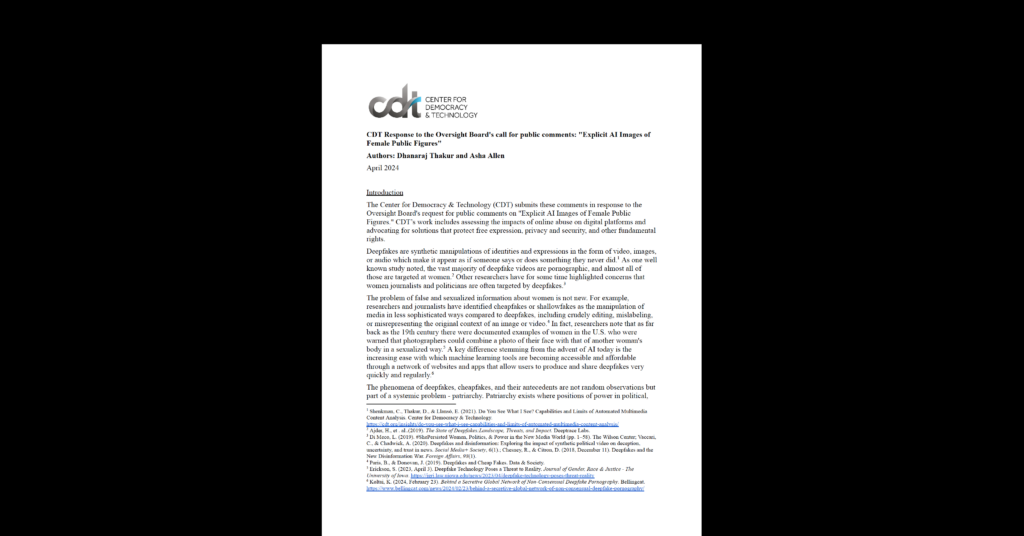Free Expression

The internet and new technologies give individuals the ability to publish and receive information, participate in political processes, and share knowledge. CDT has fought to extend the highest level of free speech protections to the internet and to keep new technologies free of government censorship and content gatekeepers. Private online service providers need to be protected from legal liability for content posted by users so that they will be willing to host it. User choice and control, which allow individuals to decide what to say, publish and access online, are essential parts of protecting free expression rights.




